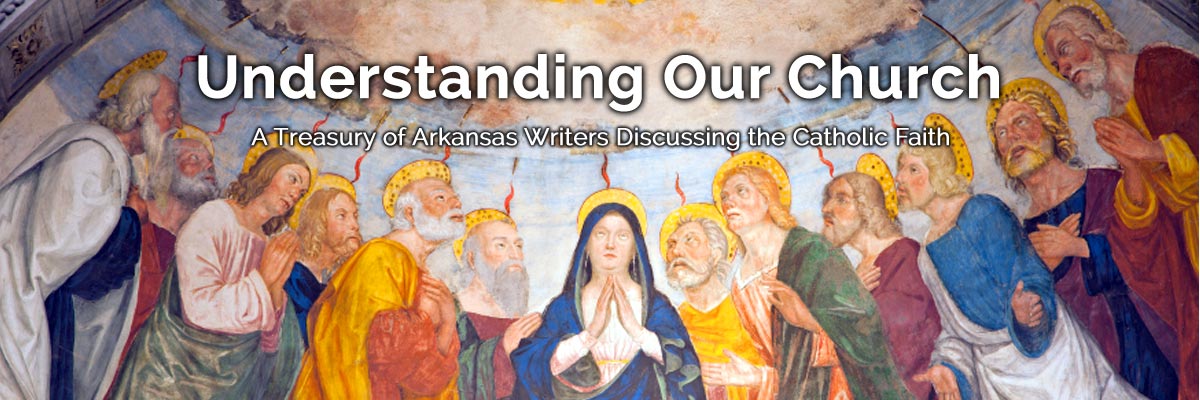Official Website of the
Catholic Diocese of Little Rock
Inerrancy of Bible means truth in message, not always history
Published: November 16, 2017
By Paula Standridge
St. John the Baptist Church, Hot Springs
Sacred Scripture has always been regarded by Christians as the inspired word of God. As such, it logically follows that this Scripture would be free of error since God, being perfect and all-knowing, cannot be the author of error.
In order to prove sacred Scripture or the Bible to be inerrant, the first task would be to define what is meant by inerrancy, particularly as is applies to the Bible.
The dictionary of the New American Bible states: “Inerrancy, for the Bible, not only means that no errors are found there, but also that no errors are possible there … One must however understand inerrancy correctly … it refers only to what the sacred author intends to affirm and with that degree of certitude with which it is affirmed.”
Everything in the Bible communicates God and his divine will for us. This does not mean that every story or narrative needs to be accurate in every detail. The Bible is not meant to be a historical document or word-for-word commentary on people, places or events.
In simple terms, this means that the truth of the Bible lies in the fact that it says or communicates exactly what God intends for it to. God’s message in holy Scripture is a message of love and salvation.
The Second Vatican Council's Dogmatic Constitution on Divine Revelation ("Dei Verbum") explains: “Through divine revelation God chose to show forth and communicate himself and the eternal decisions of his will regarding the salvation of men … everything asserted by the inspired authors or sacred writers must be held to be asserted by the Holy Spirit, it follows that the books of Scripture must be acknowledged as teaching solidly, faithfully and without error that truth which God wanted put into the sacred writings for the sake of our salvation.”
Everything in the Bible communicates God and his divine will for us. This does not mean that every story or narrative needs to be accurate in every detail. The Bible is not meant to be a historical document or word-for-word commentary on people, places or events.
Some Christians believe that every event happened exactly as it is told in the Bible. This is actually a literalist point of view, which is hard to defend when there are seeming contradictions such as the two accounts of the creation of man found in Genesis. Catholic teaching is that God created man in his image and likeness, which is the “truth” of the creation story.
As Catholics we have a rich tradition and history to turn to when we desire to learn more about our faith and beliefs, such as the inerrancy of the Bible. Early Church fathers, writings of the saints, council documents, encyclicals of the popes and the Catechism of the Catholic Church are some of the sources we can use to explore what we believe.
One of the Church fathers, St. Clement of Rome, wrote in his Epistle to the Corinthians: “Brethren be contentious and zealous for the things which lead to salvation. You have studied the holy Scriptures, which are true and of the Holy Spirit. You well know that nothing unjust or fraudulent is written in them.”
Learning that the Bible is true regardless of the accuracy of details is both a liberating and perplexing revelation. On the one hand, we can be sure that everything we read in the Bible is what our Creator intends for us to know about him.
On the other hand some of our best loved Bible stories may be just that — stories — but they still inform and educate us about God and his message of salvation.




